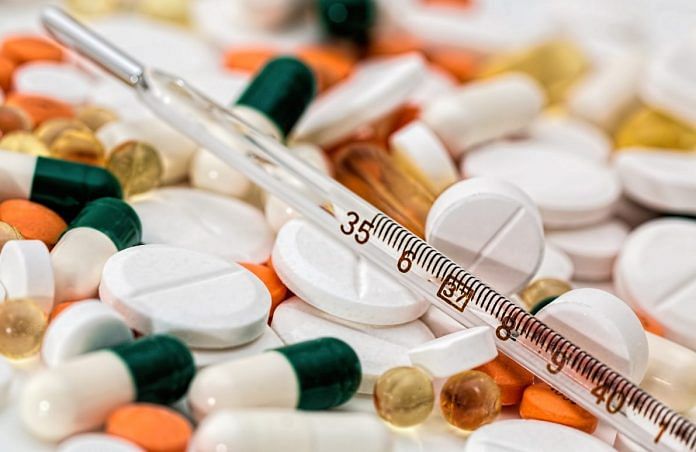New Delhi: A powerful pharma lobby in the US has asked the US Trade Representative (USTR) to continue to keep India on its ‘priority watch list’, which includes countries that are ‘violators’ of US’ patent laws.
In its annual submission to the USTR, the Pharmaceutical Research and Manufacturers of America (PhRMA), the trade association of the US’ top drug-makers, said the copycat versions of patented drugs could cause irreparable damage to patients’ health.
USTR is an American government body responsible for developing and coordinating international trade.
The PhRMA also slammed India for not translating into reality the ‘positive signs’ shown by its government about providing better protection of intellectual property rights and improved market access.
“Pharmaceutical innovators again saw positive signs from the Indian Government in 2018; however, these signals have not yet been translated into real policy and practical change,” the PhRMA said in its submission.
A senior diplomat in the India’s health ministry, however, dismissed the PhRMA’s submission and said it is just America’s ‘pressure tactics’ to make India open its market for their medicines.
Also read: European regulator finds cancer-causing element in diabetes medicines made in India
‘Threatens patients’ safety’
In its submission, the PhRMA has highlighted that the Indian government allows the manufacture of the copy of patented drugs, which could cause irreparable damage to patients’ health.
“Indian law allows Central Drugs Standard Control Organization to approve third-party manufacturers to commercialize copies of innovator products, regardless of whether those products infringe on an innovator’s patent(s),” the PhRMA said.
“After four years of the medicine’s first approval in India, a mere license to manufacture from any of the state drug regulators to manufacture and market the product in India suffices — resulting in irreparable harm to patients, innovators, and other follow-on producers,” it added.
The PhRMA further said innovators were seeing increased instances of infringing products being manufactured outside India in its neighbouring territories, which were also being illegally imported by India. “Not only do such products violate patents granted in India, they may also potentially threaten patient safety,” it said.
The PhRMA has requested the USTR to see that “India remain on the Priority Watch List in the 2019 Special 301 Report, and that the US Government continue to seek assurances that the problems described herein are quickly and effectively resolved.”
The ‘Special 301 report’ is an annual exercise undertaken by the USTR to address market access and intellectual property barriers that harm the American companies and their trade interests.
‘Discourages introduction of new medicines in India’
The PhRMA said its patent applicants continued to face rejections in India and they also faced the threat of compulsory licenses in which the government allows some other manufacturer to produce a patented product without the consent of the patent owner.
“Not only is this a concern in the Indian market, but also in other emerging markets that may see India as a model to be emulated,” it said.
The PhRMA further blamed India for unfair commercial use of the innovation and said that “it discourages the development and introduction into India of new medicines for unmet medical needs”.
‘India’s health spending lowest in the world’
The lobby further said the Indian government was responsible for the country’s poor healthcare ecosystem.
Highlighting the dearth of qualified healthcare personnel, inadequate and ill-equipped healthcare facilities here, the PhRMA slammed India for its poor health budget.
“Despite the encouraging and ambitious goals in the new National Health Policy, the government spending on healthcare remains at about 1.4 per cent of GDP, one of the lowest levels of expenditure in the world,” it said.
The PhRMA added “without increased resources…high out-of-pocket spending on healthcare and pressure on the cost of medicines will persist…Even medicines and vaccines that are offered free of charge often do not reach the patients who need these medicines.”
These are pressure tactics, says health ministry official
“It is not new that US pharma lobby has tried to malign the Indian pharma market. Since last many years, we have been put on the watch list as intellectual property right violators,” said the senior diplomat at the Ministry of Health and Family Welfare.
“These are the pressure tactics where the US companies want us to open the Indian market for their medicines. We have been opening market for their products continuously, but wisely,” he added.
The top officer said, for instance, the Department of Pharmaceuticals (under the Ministry of Chemicals and Fertilizers) in January amended a provision against foreign companies, which had exempted only patented medicines developed in India from price controls for five years from the beginning of their marketing in India.
“We have been bringing down the restrictions wherever necessary,” the diplomat said.
Ashok Madan, executive director of Indian Drug Manufacturers’ Association (IDMA), country’s largest pharma lobby with over 1,000 companies as members, said the US report “simply tarnishes” reputation of Indian pharma firms.
“Despite all the efforts being taken by government of India, PhRMA is slamming India on several parameters. The report simply tarnishes the reputation of Indian pharmaceuticals industry without considering the facts,” he said.
“For instance, the report raises problems related to the compulsory licensing of generics in India, avoiding the fact that till date only one compulsory license — for kidney cancer treatment — has been granted way back in 2012.”



